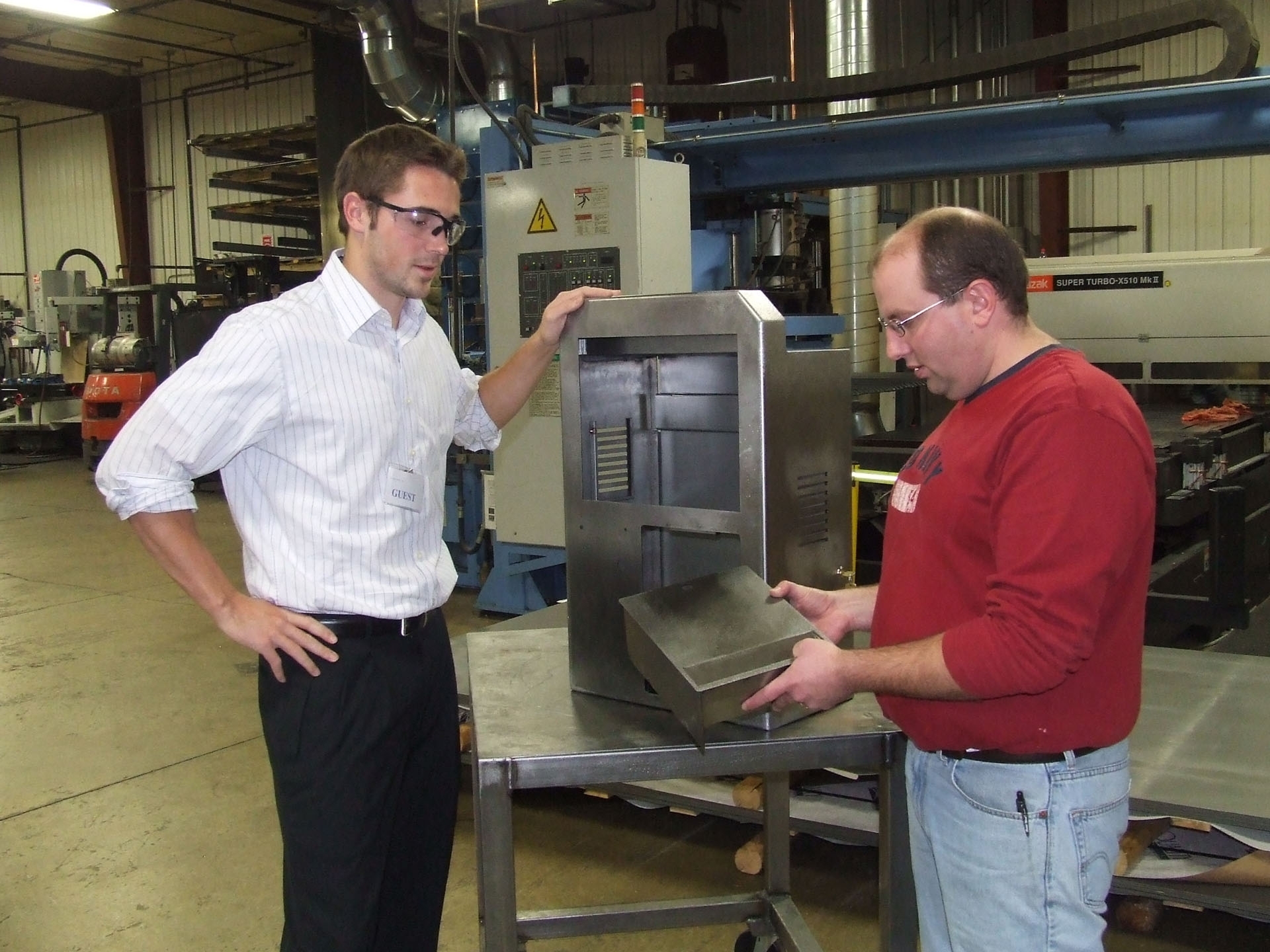What’s your story?: Ryan Walden ’10
A friend’s mistake might just be the very inspiration Cornell senior Ryan Walden needed to jump start his first business venture.
Still a semester from graduation, Walden—an Edina, Minn., native—is on the verge of fully establishing his own company and, if all goes well, a product that could save lives and keep drunk drivers off the road.
 The intoxbox, a sort of breathalyzer vending machine, would allow bar patrons to cheaply and easily test their own blood alcohol content (BAC) well before stepping into the car. Strictly speaking, the purpose of the intoxbox is to help individuals understand how food, beverages and other environmental factors can affect their blood alcohol level, but Walden thinks that the foreknowledge might keep drunk and lightly intoxicated drivers from getting in their car.
The intoxbox, a sort of breathalyzer vending machine, would allow bar patrons to cheaply and easily test their own blood alcohol content (BAC) well before stepping into the car. Strictly speaking, the purpose of the intoxbox is to help individuals understand how food, beverages and other environmental factors can affect their blood alcohol level, but Walden thinks that the foreknowledge might keep drunk and lightly intoxicated drivers from getting in their car.
“A friend got a DWI [Driving While Intoxicated] when he was just over the legal limit, only he didn’t know he was above,” said Walden of how the idea came to him. “It seemed like it should be a right to know. People want to have that resource.”
A little research showed that machines that measured BAC were in use around the world, but had barely seen any penetration into the U.S. market. The problem, Walden found, was in the design. The machines were bland in appearance, difficult to manage, only accepted coins and bills, held only a few straws (used for blowing into the machine), and had to be replaced often. Walden wanted to fix those problems to make the machines more accessible for bar goers.
So Walden did what any entrepreneur would do—formed strategic partnerships with multiple engineering companies, found suppliers for parts, and researched bar owner preferences. Only Walden was still just a junior in college, a year from his degree and barely able to enter the very bars to which he was trying to pitch his idea.
“People kind of look at me like I’m crazy,” he said. Though he added that professors Ron Carlson and Santhi Hejeebu at Cornell were both highly supportive of his idea.
Of course, it was never as easy as it sounds. Walden estimates that 90 percent of the calls and meetings he set up went nowhere. There were times during the previous summer when he felt ready to give up. But it wasn’t an idea he was willing to simply let go.
“I wouldn’t have gone out on a limb for something I didn’t believe in,” he said. “I saw this as a good opportunity to go after something.”
Slowly but surely other firms climbed on board. He found a company to take charge of assembly, another one willing to make the frames, a company that could program the machines, another one willing to provide the sensors needed to measure the BAC, and about six other businesses willing to bet on the intoxbox. Most of the time, he found ways to get the work done at a steep discount with the promise of future business with a promising product.
The road to the first few machines—likely to be placed in Minneapolis late in 2009—has also been a family affair. Walden’s brother Whit, a CPA, organized the financials and worked with a patent attorney to protect the idea. Their father, Gene, is a marketing expert who also was able to secure a number of connections that got their business—Walden Innovative Resources LLC—up and running.
For what it’s worth, Walden plans to graduate in May with a degree in economics and business. By then he may be the only Cornell graduate who steps out from under his mortar board and into his very own board room.
“I never really excelled in the classroom, but I’ve felt like I’ve excelled outside of it,” said the young entrepreneur. “I’ve always felt like I wanted to take a different route.”



